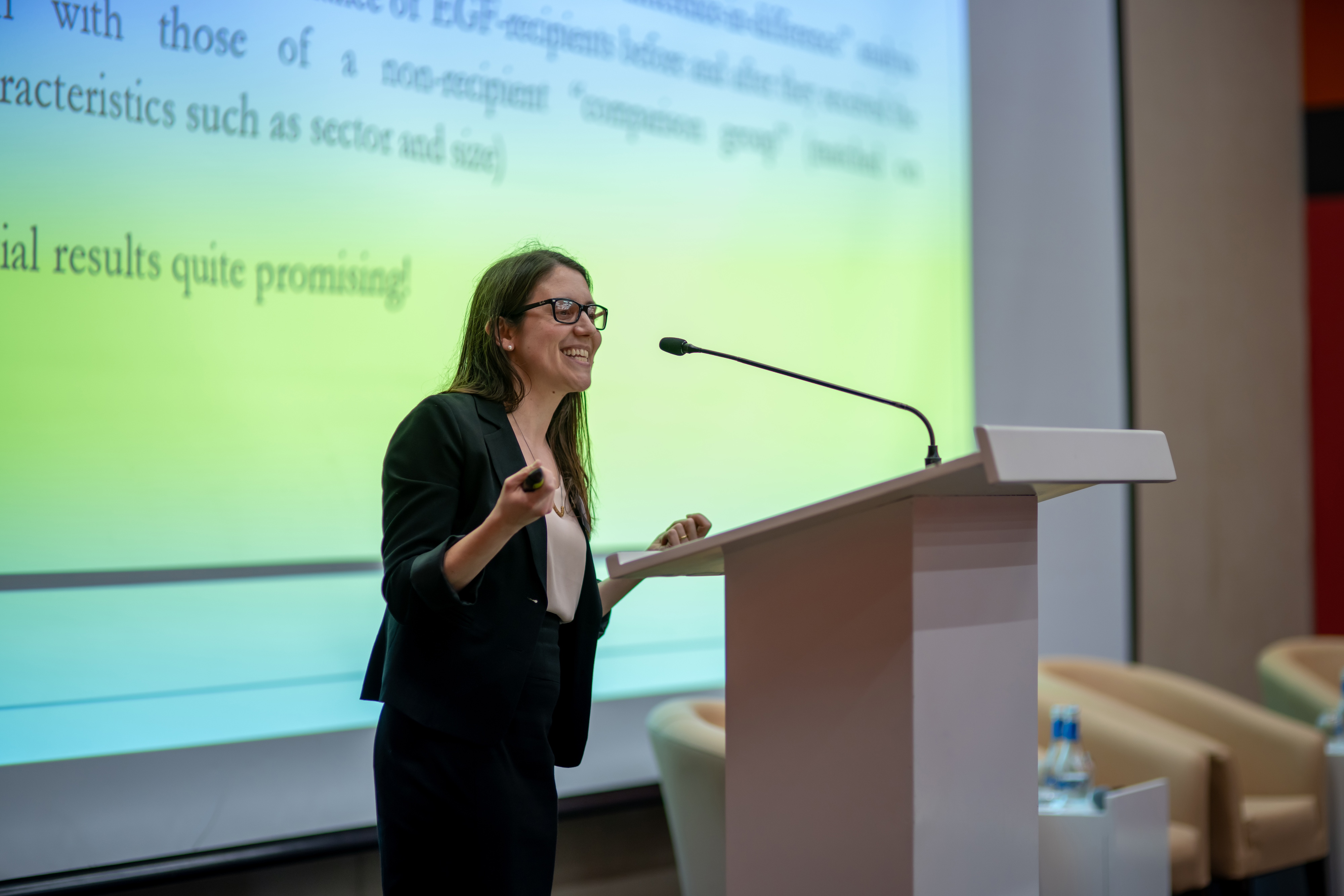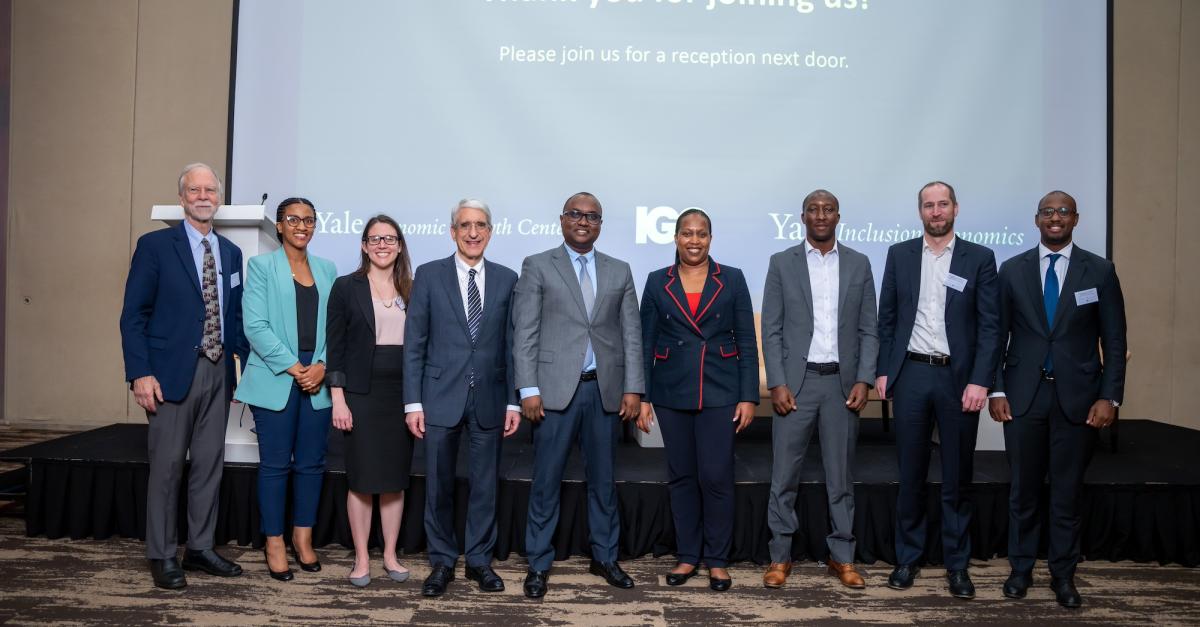EGC affiliates present research at Rwanda policy dialogue featuring Yale President Peter Salovey
Looking back at “Collaboration through Research: Pathways to Evidence-based Policy in Rwanda”
By Erik Jorgensen
March 14, 2024
Yale President Peter Salovey delivered welcoming remarks that described Yale’s contribution to transforming research into policy in Africa at a March 11 policy dialogue that took place in Kigali, Rwanda. Yale faculty are currently engaged in a variety of projects in the country, which span last-mile infrastructure investments to industrial policy, and are made possible through collaboration with policymaker and practitioner partners, several of whom were present at the event.
The policy dialogue was chaired by Dr. Jean Chrysostome Ngabitsinze, Rwanda’s Minister of Trade and Industry, and featured Yale economists Lauren Falcao Bergquist and Kevin Donovan, who presented their ongoing Rwanda-based research collaborations. Event attendees, including the Ministers of Infrastructure and Trade and Industry and other policymakers, academics, development partners, and Yale alumni, took part in discussion which focused on approaches to grounded, timely, and policy-relevant research in Rwanda.
In his inaugural remarks as Yale’s president in 2013, Salovey launched an initiative to strengthen ties between Yale and Africa by fostering new directions in research on Africa, and identifying new partnerships and deepening existing ones, all while transforming the educational experiences and career opportunities of students at Yale and in Africa. Throughout his tenure as president, Salovey, who announced his intention to step down earlier this year to return to a full time faculty role, has continued to leverage the power of partnerships and global networks across the continent to create new knowledge in science, public health, business, and other disciplines – and to improve lives around the globe.
The March 11 event was hosted by the Yale Economic Growth Center (EGC), Inclusion Economics at Yale University (YIE), and the International Growth Centre, based at the London School of Economics. At its founding in 1961, EGC was the first research center dedicated to quantitative analysis of low- and middle-income economies at a major university in the United States, and has played a key role in furthering Yale’s mission to promote research collaborations across many regions, including sub-Saharan Africa. Additionally, EGC hosts the International and Development Economics (IDE) master’s program, which in 2022 launched a Sub-Saharan African Student Scholarship, with the aim of providing new opportunities for excellent students from a region central to development economics, and encouraging further diversity in the program.
In his remarks, Salovey spoke about Yale’s commitment to global collaboration and extending the university’s outreach to foster educational partnerships in Africa. He noted the mutual benefits of academic collaboration, saying, “Rwanda is at the forefront in Africa in seeking out research to inform policy and this policy dialogue highlights the research of Yale faculty within the deep partnerships they have developed in this country.” A key component of EGC, YIE and IGC’s work together is to help enable the insights of economics research to support policy decision-making in close collaboration with government and other counterparts.
Research focused on advancing economic growth in Rwanda
Lauren Falcao Bergquist, an Assistant Professor of Economics and Global Affairs at Yale Jackson School of Global Affairs and the Economics Department and an EGC affiliate, presented her ongoing research collaboration with the Development Bank of Rwanda and Ministry of Trade and Industry focusing on the Export Growth Fund, a key instrument of Rwanda’s industrial policy. In this initial stage, Bergquist and coauthors find that firms receiving loans from the fund had a 50 percent increase in revenues, 30 percent increase in employment, and increased probability of export after two years, with strongest effects concentrated in smaller firms.

Director General Antoine Kajangwe from the Ministry of Trade and Industry joined the discussion, reflecting on how important this first research phase was for evidenced-based decision-making. He said that research insights are important for deploying human and capital resources and negotiating between competing priorities. Bergquist’s research collaboration with the Ministry is now entering the stage where partners will deploy a full-scale randomized controlled trial to assess impacts of the fund. Bergquist also discussed core elements of her approach to policy-engaged research projects: that they be driven by demand from local policymakers, consist of deep and regular engagement, and involve phases with clear inflection points – where insights can be put to use without waiting on a published paper.













